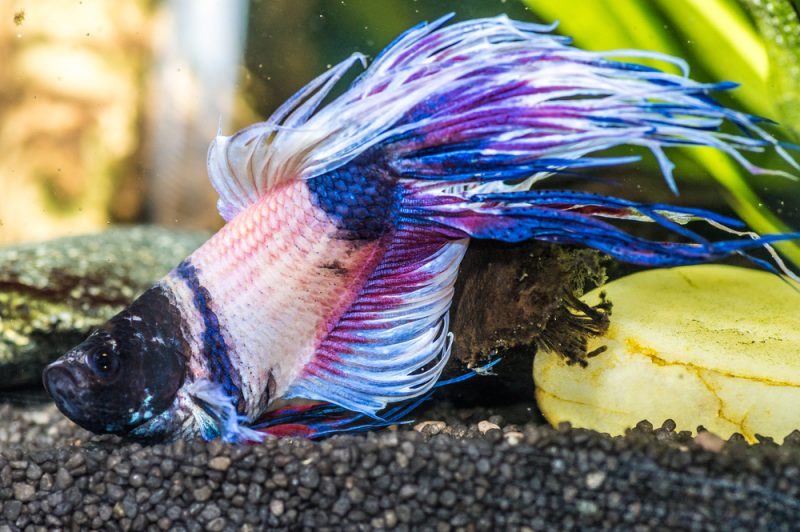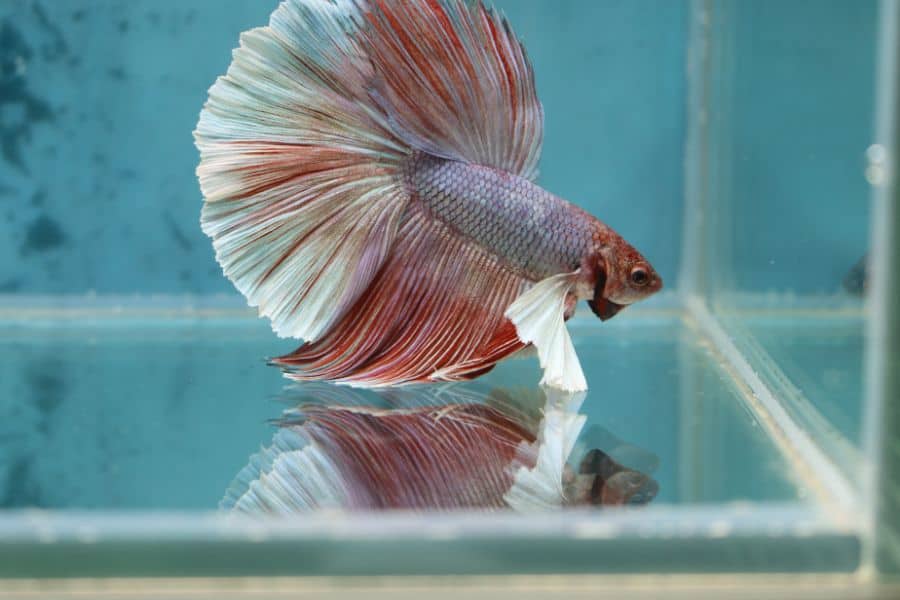
Decoding the Last Moments: Understanding Betta Fish Behavior Before Death
The captivating personalities and dazzling colors possessed by betta fishes have turned them into favourite

The captivating personalities and dazzling colors possessed by betta fishes have turned them into favourite house pets globally; nonetheless they too are subject to natural aging processes as all creatures do. For conscientious individuals who own such awesome species as pets detecting early signals pointing to an unhealthy or dying betta fish is paramount for providing compassionate and attentive care. In this article, we will explore the prevalent signs of a decaying betta fish, how it could escalate over time, and how to give your beloved pet the best care possible as they approach the end of their life stage.
Introduction
Recognising dying betta fish is an exercise in keen observation. Close observation of your betta fish’s habits might help you predict when it could be nearing the end of its life. You may now give your betta fish the TLC and emotional support it needs to get through this tough period.
Common End-of-Life Behaviors in Betta Fish
There are a number of signs that may be used to determine whether a betta fish is dying. Examples of such conduct include:
- As its life cycle draws to a close, a betta fish may become less active and show less interest in its surroundings.
- A betta fish that isn’t feeling well can start refusing food and losing weight.
- Breathing difficulties might cause a betta fish to spend more time at the water’s surface, where it gasps for breath.
- Changes in appearance, such as fading or discoloured scales, may be shown by an ailing betta fish.
- A betta fish that isn’t feeling well could tuck its fins inside its body and assume a slouched position.
- A sick betta fish may have trouble swimming and keeping erect in the water, exhibiting erratic swimming patterns and an unsteady stance.
- If a betta fish isn’t feeling well, it may spend more time than usual resting on the tank’s bottom or hiding.
The Progression of End-of-Life Symptoms and What They Mean
A betta fish’s behaviour may change over time as its condition worsens. Understanding the severity of your pet’s condition requires you to be aware of these shifts. Observe for these occurrences:
- You may notice a shift in your betta fish’s behaviour as its health declines, including a decreased appetite, a lack of interest in its surroundings, and a decrease in activity.
- Symptoms may worsen over time, potentially making daily activities like as swimming and breathing more challenging.
- How to Recognise the Need for Euthanasia: If you own a betta fish, you should know the signs that indicate it’s time to contemplate euthanasia. The most humanitarian choice may be euthanasia if your pet is in pain and has a low quality of life.
Caring for a Dying Betta Fish

Making a dying betta fish as comfortable as possible is an important part of pet care. In order to help you take better care of your betta fish, here are some suggestions:
- Make sure there’s no tension around: Keep the water in your betta fish’s tank clean and fresh to lessen the strain on your pet.
- Readjust your eating habits: Instead of having three substantial meals a day, provide many smaller ones.
- Clove oil, an anaesthetic, may be utilised as one such alternative for pain control.
- Recognising the need for veterinary care: Seek veterinary advice if you are unsure of what to do or if your betta fish’s condition worsens.
Coping with the Loss of a Betta Fish
Losing a pet may be a traumatic and distressing event. Here are some suggestions to help you get over the death of your betta fish:
- It’s normal to feel sad and to need time alone to go through your feelings; give yourself permission to mourn.
- Don’t forget your pet: Think about making a monument for your betta fish, whether it’s a photo book full of pictures or a specific plant.
- Find help: Get some emotional support from loved ones by reaching out to them.
Conclusion
Knowing how to identify signs that your beloved Betta Fish may be near death’s door portrays due diligence as a responsible pet owner. Actively seeking any behavioural changes which could indicate it’s on its last leg; providing attentive care during these trying times can increase comfort levels significantly. Additonally , being aware of instances when euthanasia is applicable or veterinary aid required in these instances has equal importance in handling an outgoing Betta Fish properly . Finally , express emotions appropriately by giving yourself ample time needed through grieving process while recalling fond memories while gaining emotional strength & support from close social circles.
Recognising dying signs is an essential part of being a responsible pet owner, and betta fish owners are no exception. By being there for your betta fish in its dying days, you can make sure it knows how much it is loved and cared for. Do not delay in getting veterinary help if you notice any changes in behaviour or health in your betta fish. If you give your betta fish the love and attention it deserves, you may make its dying days the greatest of its life.
You Can Also Read Here NutraBurst Products: A Comprehensive Review
